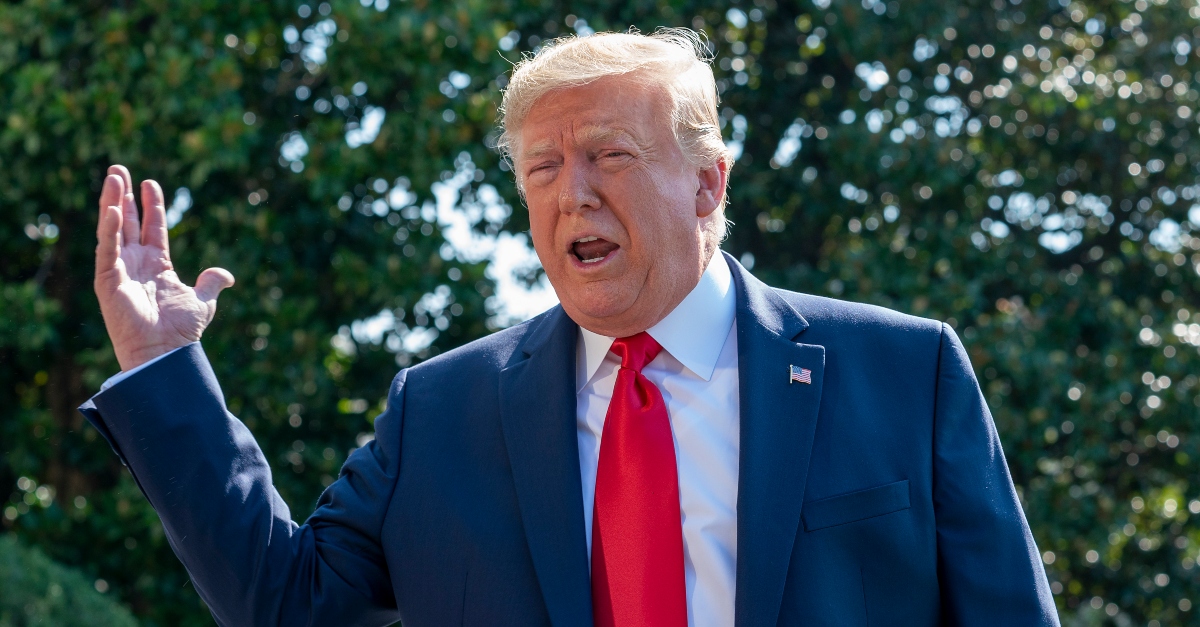
Attorneys for the House Oversight Committee on Tuesday submitted a scathing response to the legal brief filed by the Department of Justice, which supported President Donald Trump’s position that the Congressional subpoenas for his financial records should be struck down. Trump lawyers, on the other hand, said that the U.S. Supreme Court might need to step in.
The Committee’s brief, penned by House General Counsel Douglas Letter, is 27-pages of trenchant criticism directed at the legal positions taken by both President Trump and the DOJ.
Letter got right to the point, opening the brief with a summary of the legal arguments the Committee is up against.
“The Department of Justice’s amicus brief posits, with no grounding in history or law, an astounding and novel theory of limited Congressional power to conduct investigations and oversight,” he wrote. “Without acknowledging this history, the Department urges this Court to intrude on the U.S. House of Representatives’ exercise of its Article I power in ways that are flatly inconsistent with Supreme Court precedent.”
The case is an appeal of U.S. District Judge Amit Mehta’s June decision, wherein he ruled that Congress was legally authorized to issue the subpoenas for the financial information.
The DOJ’s brief was submitted last week at the request of the D.C. Circuit Court panel and argued almost in lock-step with President Trump’s attorneys in contending that the subpoenas for the President’s records were outside of Congress’s authority because they did not serve a legitimate legislative purpose and would unduly burden the president from performing his duties. The DOJ also urged the court to force the Committee to narrow the scope of their request.
An incredulous Letter responded by accusing the DOJ and President Trump’s attorneys of espousing arguments with no foundation in the law.
“The Department contends that the Court should engage in a ‘searching evaluation’ of whether the [Committee] has a legitimate legislative purpose and employ ‘especially demanding inquiries’ to determine whether the subpoenaed information is sufficiently ‘important to Congress’s investigation.’ The Department insists that the House must ‘clearly authorize’ a subpoena seeking information concerning the President and identify with ‘sufficient particularity the subject matter of potential legislation,’” Letter wrote, summarizing the DOJ’s reasoning.
“These arguments are fabricated out of whole cloth: they may represent what the Department wishes the law were, but they are not the law.”
The Committee brief also addressed the DOJ’s lack of legal authority to support its argument that the court provide a stringent test to determine whether the subpoenas served a legitimate legislative purpose.
“The department cites no law supporting this novel concept because there is none,” Letter concluded.
Attorneys for President Trump also filed a brief in support of the DOJ’s arguments Tuesday. While the brief mostly recited support for the DOJ, it also hinted that the case could or should reach the Supreme Court.
“[T]his case or in the future, the Supreme Court might need to assess whether a congressional subpoena to a third party for a president’s records in and of itself violates the separation of powers,” Trump’s attorneys wrote.
Team Trump filing:
Trump lawyers’ response in Mazars case by Law&Crime on Scribd
House Democrats’ filing:
House Democrats’ filing in Mazars case by Law&Crime on Scribd
[Image via Tasos Katopodis/Getty Images]